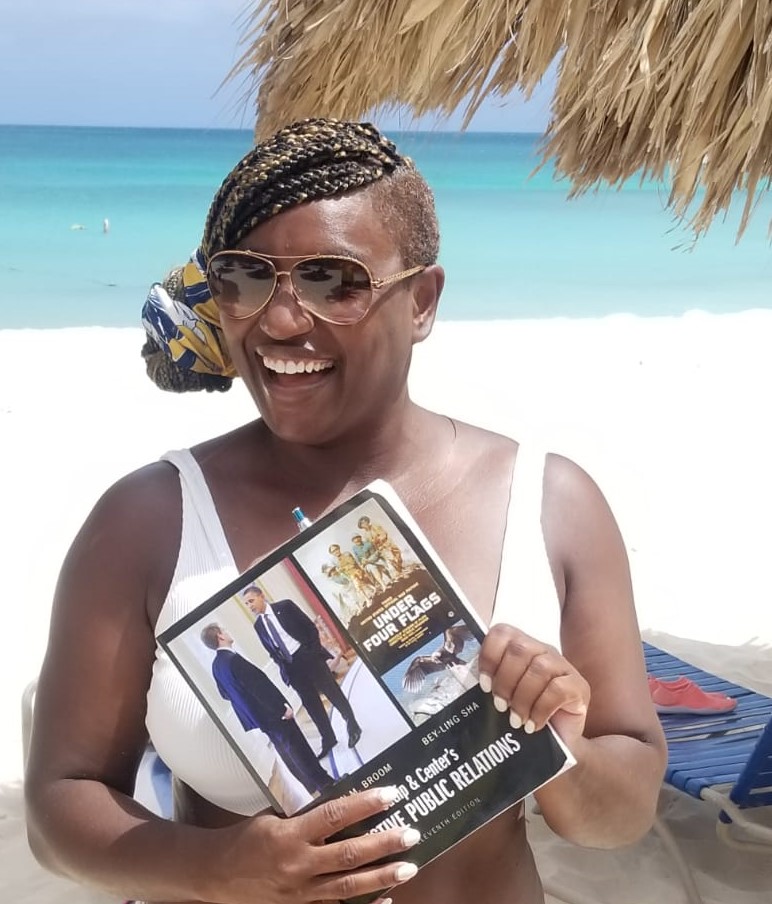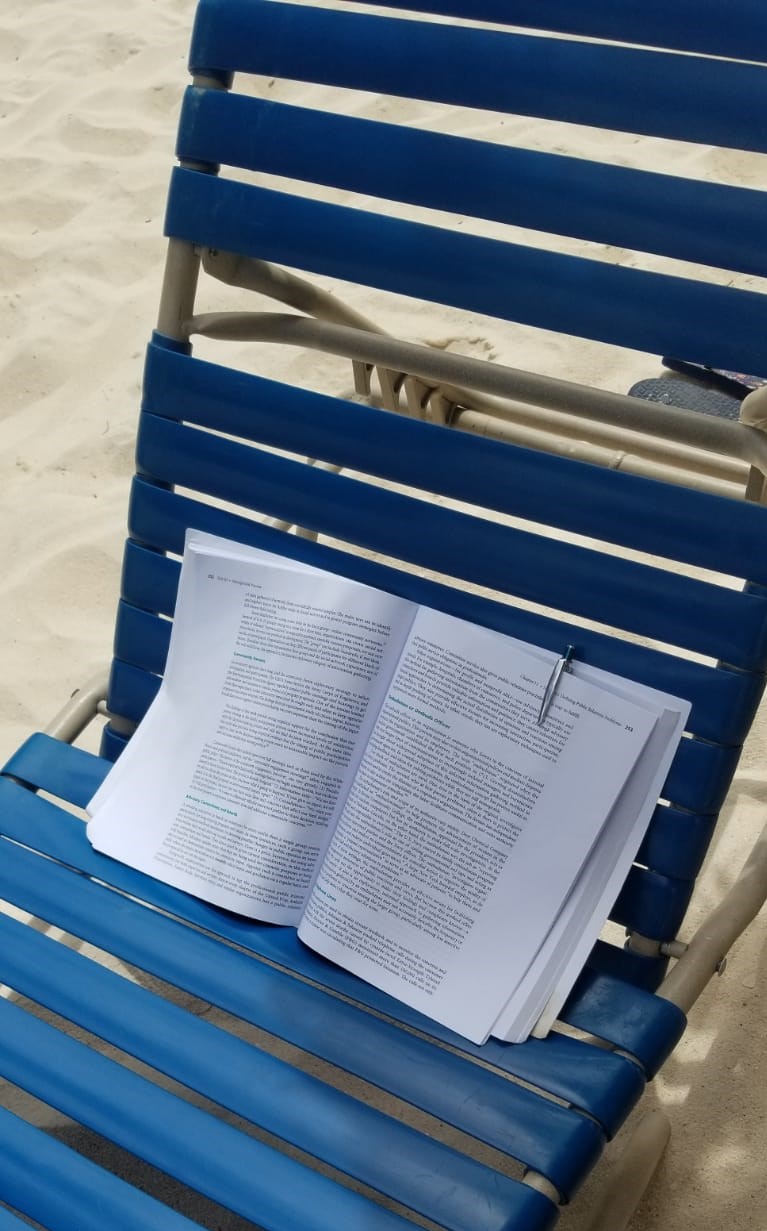I Failed My First APR Computer Based Exam By One Percent...What Do I Do Now?!
- Yolanda King Stephen

- May 10, 2019
- 4 min read
Updated: Oct 7, 2020

So I studied. And I made notecards. And I joined an online class. And I locked myself in my room for hours at a time to review.
And I sat there staring at the computer screen after taking the computer based examination (CBE) when a four-letter word flashed before my eyes. FAIL.
There was no way I studied for almost a year to…fail!? It was disheartening. My feelings were hurt. My pride was hurt. I didn’t want to tell my friends. I certainly didn’t want to tell my colleagues. I knew not passing my Accreditation in Public Relations (APR) was not the end of the world, but it sure did put some things in perspective. If this is you, keep reading for some tips to help you prepare for success the next time around. It’s a bit of a read, but it’s worth it!
1. Make note cards and study them in a different way. Don't just put the word on one side and the definition on the other. For example, place a scenario on the card that deals with cognitive dissonance or differences between staff/line team members and then talk through the scenarios instead of just having a definition on one side and a word/term on the other. The CBE will not ask 'What is cognitive dissonance' or 'what is a staff member'. It will provide a scenario and you have to know what term best fits that scenario.
2. Use what others have created to save time. For example, I took two days and studied Quizlets that others created. That's all I did during my study time. Another time, I went through an online prep class and read through at least six scenario questions from each module. I used a total of five hours (2.5 hours each day) to incorporate this into my studying and it was very beneficial.

3. Sign up for a class. I signed up for an online course through the Universal Accreditation Board and Public Relations Society of America. They offer moduled classes that lasts ten weeks. These classes offer recommended reading and online study guides that streamline your progression.
4. Read various material. Some of the CBE questions referenced thoughts directly out of Strategies and Tactics and Effective Public Relations. Focus on areas with top KSA's (Knowledge, Skills, Abilities). Also familiarize yourself with the concepts of those items that are not top KSA's. Diversify your studying to obtain different vocabulary as you prepare for the exam.
5. Use your time wisely. This exam has 177 question. It is long. I can't stress that enough. This test is very long. If you have been out of the classroom for years then this exam is excruciatingly long. If you study for just 30 mins or an hour and you have to sit through a three+ hour exam then you can become mentally fatigued and you get tired. My advice is, during the last month of studying, to study for 2 hours and 30 minutes each sitting without getting up. You will get tired, you will get sleepy, you will get thirsty. Work through it. The first time I took the CBE I had 2 minutes left with no time to go back and review flagged questions and the second time I took the CBE I had 12 mins to go back and review. I didn't take any bathroom breaks because I knew my time was sensitive and the clock continues to countdown when you take breaks. You have to go back through security and check-in if you leave the room. This can take 7-10 mins. Those 7-10 mins can become very valuable if you have flagged items or unanswered questions.
"Failure is an important part of your growth and developing resilience. Don't be afraid to fail." - Former First Lady Michelle Obama
6. Don't psych yourself out. The first sitting of the CBE, I knew by Q15 that I wouldn't have enough time to complete answers due to how long the questions were. I was right. I panicked and chose answers that were not the best and I failed (seriously...that's what it said in bold letters - FAIL). The next time around I knew I had to be to a certain question by a certain time to have some time left over. That technique worked and it allowed me to pace myself. And the screen said PASS!!!!
7. If you don't pass, continue studying. My results were immediate. I knew I failed before getting up from the computer screen. They also sent an email with the percentages of the KSA's related to how I did on the exam. The first exam, I failed by 1 percentage point (yep, it still hurts to even type that). I immediately came in the next day and emailed PRSA to see what I had to do obtain a new/refreshed key code to schedule again. The turnaround was quick and I scheduled for one month from the date of failing. I wanted to keep the knowledge I had and build upon concepts that I needed the most work in. I used those four weeks wisely and remembered some of the concepts to study based on the questions. The second time around, I passed. Don't let too much time lag in between sitting for the exams or you may lose some of the knowledge!

8. GOOD LUCK! YOU CAN DO IT!
Whew Doggie. The Accreditation in Public Relations was one difficult exam. Don't let it stop you because the peace, excitement and reward you feel upon passing is worth it. The tips I shared here helped me be more successful upon my re-test and I hope it will you help you the first time around - or second!
*Pics of me on the beach in Aruba one week before the second exam. Everyone commented on me actually studying and wished me luck on the test. I think some of their mojo worked!







Comments